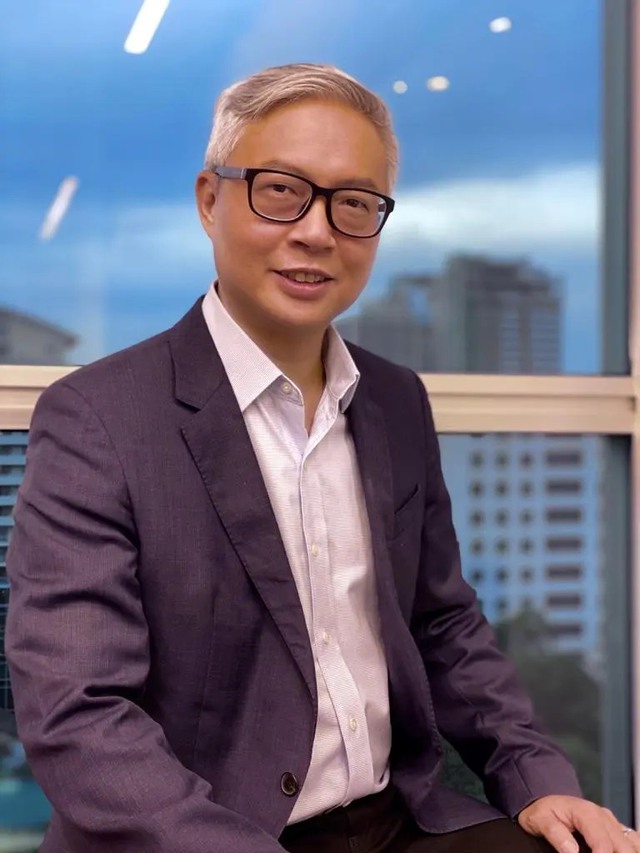Singaporean businesses to increase investment in supply chain, digital economy in Viet Nam
VGP - Singaporean investors will increase their investments in supply chain and logistics, green economy, and digital economy in Viet Nam in coming time, said Mr. Seck Yee Chung, Vice Chairman of the Singapore Chamber of Commerce Viet Nam (SCCV) in HCMC.

Mr. Seck Yee Chung, Vice Chairman of the Singapore Chamber of Commerce Viet Nam (SCCV) in HCMC
Vice Chairman Seck Yee Chung made the above statement in an interview with the VGP on the occasion of the ongoing official visit of Vietnamese Prime Minister Pham Minh Chinh to Singapore at the invitation of Singaporean Prime Minister Lee Hsien Loong.
Vice Chairman Seck Yee Chung said the relationship between Viet Nam and Singapore remains strong over the decades, with Viet Nam consistently ranking as one of the most important destinations for Singaporean investors.
Last year, Singapore and Viet Nam inked five agreements and various memorandums of understanding to increase cooperation in military, trade, digital economy, cybersecurity, clean energy, sustainable development and intellectual property.
Both nations are also members of several free trade and multilateral agreements.
SCCV hopes that the upcoming meetings and discussions during Pham's Singapore visit will open up more opportunities for investors from both countries to diversify and expand their operations in the other country, and also more agreements and cooperation documents will be signed between the two countries for mutual economic benefits.
Vice Chairman Seck said for the past few years, Singapore's investment in Viet Nam have been concentrated in the areas of manufacturing, real estate, and wholesale and retail trade.
For the upcoming years, Singapore investors will increase their investments in supply chains and logistics, green economy, and digital economy. Disruption in global supply chain have highlighted the importance of supply chains and logistics industry and Singaporean businesses are excited to continue assisting Viet Nam in developing its logistics sector by providing advice, human resources training and digital solutions.
Environment is also a hot topic and green economy will become the next target for Singapore's investment. Singaporean investors will likely focus on projects in sustainable infrastructure and renewable energy.
Last but not least, the digital economy will also be a top focus for Singaporean investors in order to drive the business expansion of Viet Nam, which will play a significant role in the economic growth of both nations, he said.
Singapore remains confident in Viet Nam's economy and investment climate
Seck said globally, investors have faced difficulties during the pandemic period, and the investments have slowed down as well.
With regards to Viet Nam, according to figures as of December 20, 2022, there has been an 11 percent decline from the same time in 2021 in the total newly registered capital, adjusted and contributed capital to buy shares, and contributions to buy capital from overseas investors.
"Nevertheless, we continue to have confidence in Viet Nam's economy and investment climate", emphasized Seck.
According to the Ministry of Planning and Investment, as of December 20, 2022, it is estimated that foreign investment projects disbursed nearly US$22.4 billion, up 13.5 percent over the same period in 2021.
In addition, there were 108 countries and territories investing in Viet Nam in 2022, in which, Singapore ranked first with a total investment of nearly US$ 6.46 billion, accounting for 23.3 percent of total foreign investment inflows into Viet Nam.
There are many reasons driving Viet Nam's post-pandemic growth, from the fundamentals like a significantly sized work force that is cost-competitive and regularly up-skilled, to the growing middle class that demands for a brander range of quality and affordable products and services, to improvements and developments in logistics and infrastructure, noted Seck.
Viet Nam's management of the pandemic and its ability and confidence in re-opening the economy and borders more quickly than its neighbors also helps to give confidence to investors.
Regarding what the Government should do to further improve the business environment, Seck Yee Chung said: "First, to provide consistent guidance and application for licensing procedures. We recommend a direction to be issued to cause licensing authorities not to require any additional documents other than the regulatory ones and such direction should be published on the website of the Ministry of Planning and Investment."
He suggested clearer guidance on land clearance and settlement and more transparency in the process./.
